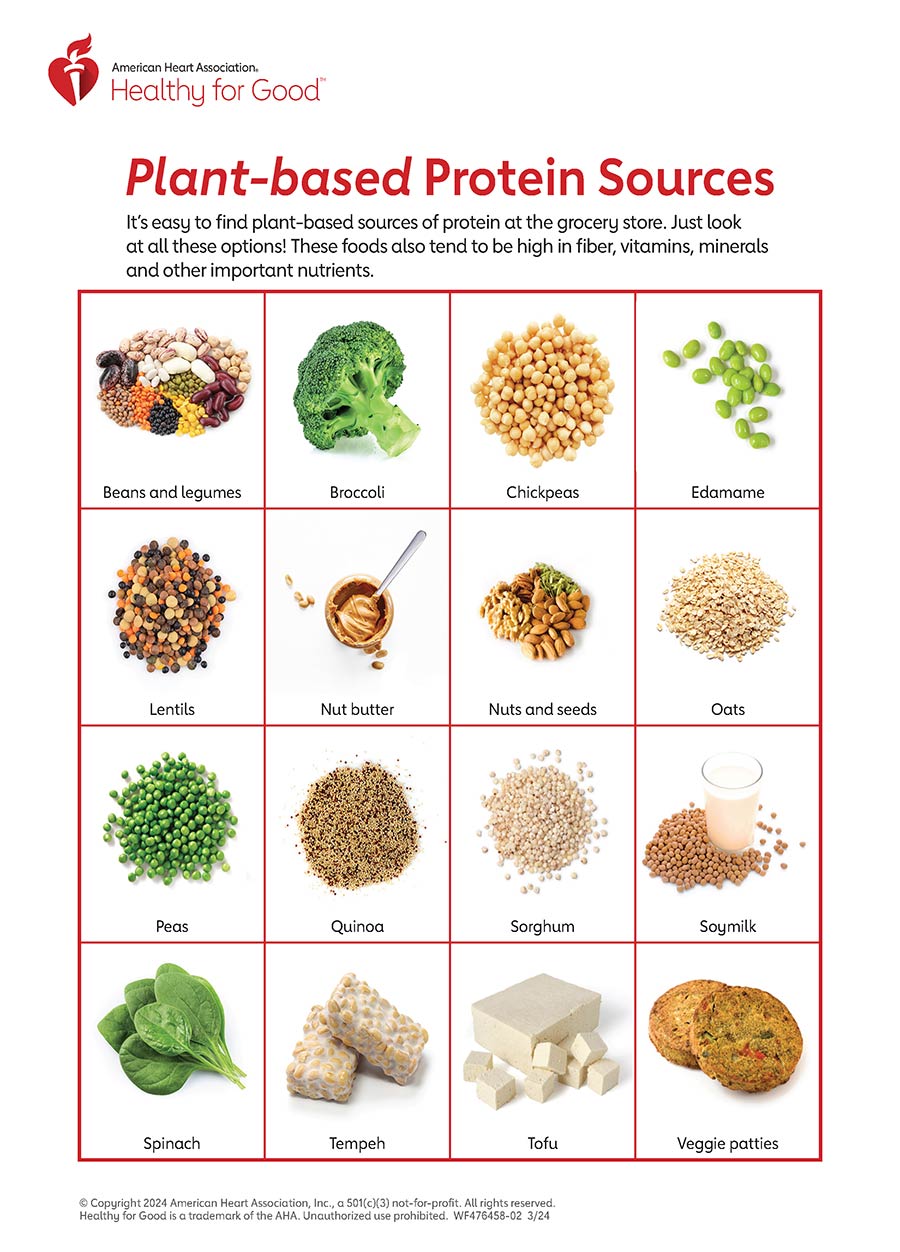BBQ Sauces Ranked: Which Ones Complement Plant-Based Meals Best?
BBQ Sauces Ranked: Which Ones Complement Plant-Based Meals Best?
Blog Article
Everything About Healthy Food: Benefits of Embracing Plant Based Choices
The discussion bordering plant-based diet plans has actually gotten significant focus in the last few years. Several individuals are checking out the prospective wellness benefits, dietary benefits, and environmental impacts connected with these nutritional selections. As individuals come to be a lot more familiar with their food's impact on wellness and sustainability, questions develop about the functionalities of adopting such a way of life. What specific changes can one anticipate, and exactly how might these choices improve not just personal wellness yet also the world's future?
Recognizing Plant-Based Diet Plans
Several individuals connect plant-based diet plans primarily with vegetarianism or veganism, these diets can include a large range of consuming patterns that focus on entire, minimally processed plant foods. Such diet regimens typically include fruits, vegetables, whole grains, nuts, seeds, and beans, while limiting or eliminating animal items. This adaptability enables individuals to tailor their nutritional selections according to dietary demands and individual preferences. Some may take on a largely plant-based diet plan while still periodically consuming meat or dairy products, usually referred to as a flexitarian technique. The emphasis remains on integrating even more plant foods, which can bring about a diverse variety of meals and tastes. Understanding these different interpretations of plant-based consuming is essential for valuing its accessibility and appeal in modern food culture.
Health And Wellness Benefits of Plant-Based Foods
The health advantages of plant-based foods are substantial, providing a nutrient density advantage that supports general wellness. Study suggests that these foods can boost heart health and wellness and play a vital function in effective weight monitoring. By incorporating more plant-based alternatives, individuals may improve their dietary choices and promote long-term health and wellness.
Nutrient Thickness Benefit
Nutrient density plays a necessary duty in the health advantages of plant-based foods, making them a compelling choice for those looking for a well balanced diet regimen. Plant-based foods, such as fruits, veggies, beans, nuts, and whole grains, are typically abundant in necessary vitamins, minerals, and anti-oxidants while being lower in calories. This high nutrient density enables individuals to consume less calories while still fulfilling their dietary needs. Additionally, these foods are loaded with dietary fiber, advertising digestive system wellness and assisting in weight management. By including nutrient-dense plant-based options, consumers can boost their total health, sustain their body immune systems, and decrease the danger of persistent illness. Ultimately, the nutrient density of plant-based foods highlights their relevance in a health-conscious way of life.
Heart Wellness Enhancement

Weight Administration Support
In enhancement to advertising heart health and wellness, a plant-based diet can considerably assist in weight monitoring. This nutritional approach emphasizes whole foods such as fruits, veggies, legumes, nuts, and entire grains, which are usually lower in calories and higher in fiber compared to animal-based items. The high fiber content aids raise satiation, lowering overall calorie intake. Additionally, plant-based diet regimens are typically rich in vital nutrients while reduced in unhealthy fats, making it much easier to preserve a healthy weight. Plant Based Chicken. Research suggests that people who adopt a plant-based way of living have a tendency to have lower body mass indexes (BMIs) and experience even more successful weight reduction compared to those that eat meat-heavy diet plans. As a result, embracing plant-based options is a tactical choice for efficient weight management
Nutritional Value of Plant-Based Components
Plant-based active ingredients are abundant in crucial nutrients, supplying a diverse selection of vitamins, minerals, and anti-oxidants that add to general wellness. A contrast of healthy protein sources exposes that while pet items are usually watched as remarkable, lots of plant-based alternatives provide sufficient protein and various other a fantastic read useful substances. Understanding the dietary value of these active ingredients can aid people make educated nutritional options.
Essential Nutrients in Plants
Nutrient-rich components discovered in plants use a varied variety of important vitamins and minerals that add significantly to overall health. These active ingredients are abundant in vitamins A, C, and K, which support immune feature, vision, and blood clot, specifically. On top of that, plants supply important minerals such as calcium, potassium, and magnesium, critical for heart wellness, muscular tissue function, and bone strength. The visibility of fiber in plant-based foods help food digestion and advertises a healthy intestine microbiome. Antioxidants, found perfectly in vegetables and fruits, help battle oxidative tension and decrease swelling. Moreover, lots of plant foods are low in calories yet high in nutrients, making them an excellent selection for those looking for to keep a healthy and balanced weight while guaranteeing suitable nutrient intake.
Comparing Healthy Protein Sources
Protein resources vary significantly in their dietary accounts, with plant-based components providing one-of-a-kind benefits. Unlike animal proteins, which commonly have hydrogenated fats and cholesterol, plant proteins tend to be reduced in these undesirable components. Legumes, nuts, seeds, and entire grains are abundant in necessary amino acids, fiber, vitamins, and minerals. Lentils provide high protein content together with substantial iron and folate, while quinoa is a complete healthy protein, providing all like this 9 crucial amino acids. Additionally, plant-based healthy proteins are often come with by antioxidants and phytochemicals that support general health. The change to plant-based healthy protein sources have a peek here not only enhances nutritional intake however additionally straightens with sustainable dietary practices, decreasing ecological effect and advertising long-lasting health and wellness advantages.
Environmental Influence of Plant-Based Eating
As recognition of climate adjustment grows, many people are exploring lasting nutritional options that can substantially decrease their environmental footprint. Plant-based eating has actually become a substantial factor to reducing greenhouse gas emissions, which are primarily related to animals production. The cultivation of fruits, beans, grains, and vegetables generally requires less resources, such as water and land, compared to pet farming. Furthermore, plant-based diet regimens can result in reduced deforestation, as much less land is needed for grazing livestock or growing pet feed. By changing towards plant-based options, customers can sustain biodiversity and promote healthier environments. In general, accepting plant-based consuming not only benefits individual wellness yet additionally represents an important action toward environmental sustainability and preservation efforts.
Overcoming Common Misconceptions
While several individuals recognize the benefits of a plant-based diet plan, a number of false impressions usually hinder them from completely embracing this way of life. A typical idea is that plant-based diet plans do not have sufficient healthy protein; nonetheless, numerous plant resources, such as beans, nuts, and tofu, offer adequate protein. Furthermore, some presume that this diet regimen is pricey, when in truth, staples like beans, rice, and seasonal vegetables can be rather budget friendly. An additional false impression is that plant-based eating is excessively restrictive, whereas it in fact offers a varied selection of tastes and foods. Many stress that a plant-based diet plan may lead to shortages, yet with appropriate preparation, people can acquire all essential nutrients, consisting of minerals and vitamins, while taking pleasure in a wide selection of delicious dishes. Large Tips for Transitioning to a Plant-Based Way of life
Making the shift to a plant-based way of life can be an enhancing experience, though it commonly calls for some support to browse the preliminary changes. First, people are motivated to begin gradually, incorporating even more fruits, veggies, legumes, and entire grains right into their meals while decreasing meat and dairy consumption. Meal preparation is essential; preparing a weekly food selection can aid alleviate the adjustment and stop last-minute unhealthy options. Checking out cooking approaches and brand-new recipes can also improve the experience and maintain enjoyment about plant-based eating. Furthermore, signing up with assistance teams or areas can provide motivation and share valuable pointers. Lastly, staying educated about nourishment assurances well balanced meals, avoiding shortages while cultivating a healthy, rewarding plant-based way of life.
Delicious Plant-Based Dish Concepts
Exploring tasty plant-based dish concepts can influence individuals to accept a more nourishing diet regimen. One prominent alternative is a passionate quinoa salad, featuring cherry tomatoes, cucumber, and a tangy lemon-tahini dressing. An additional favorite is a full-flavored lentil stew, loaded with carrots, celery, and great smelling natural herbs, best for a comforting dinner. For morning meal, overnight oats made with almond milk, chia seeds, and topped with fresh berries offer a healthy start to the day. In addition, a dynamic vegetable stir-fry with tofu and a variety of colorful veggies can be a fast yet pleasing meal. Creamy avocado toast on whole-grain bread, sprinkled with flavors and seeds, provides a straightforward yet delicious snack. These meals showcase the variety and splendor of plant-based consuming.

Frequently Asked Questions
Can a Plant-Based Diet Plan Offer Enough Healthy Protein?
The question of whether a plant-based diet plan can supply adequate healthy protein is usual. Countless resources, including legumes, nuts, seeds, and whole grains, can meet protein needs efficiently, sustaining a balanced and nourishing diet plan for individuals.
Are Plant-Based Diet Plans Ideal for Children?
The suitability of plant-based diet plans for children relies on cautious planning. Sufficient nutrients should be guaranteed, including healthy proteins, minerals, and vitamins. With correct guidance, such diet plans can sustain healthy growth and growth in kids.
How Do I Dine Out on a Plant-Based Diet?
Eating in restaurants on a plant-based diet regimen entails seeking dining establishments with varied menus, asking for modifications, and discovering vegan-friendly options. Planning in advance and connecting nutritional choices can boost the dining experience while preserving dietary selections.
What Are Usual Allergens in Plant-Based Foods?
Common irritants in plant-based foods consist of soy, gluten, nuts, and seeds - Sugar Free Sauces. People complying with a plant-based diet plan should be mindful of these allergens and read tags meticulously to avoid damaging reactions and guarantee risk-free intake
Can Plant-Based Diets Assist With Weight Management?
Research study shows that embracing a plant-based diet might assist in weight reduction because of its generally lower calorie density and greater fiber web content. This mix can improve satiation, aiding people handle their calorie intake effectively. Numerous people connect plant-based diets primarily with vegetarianism or veganism, these diets can encompass a wide array of eating patterns that prioritize whole, minimally refined plant foods. Nutrient thickness plays an important function in the health benefits of plant-based foods, making them an engaging selection for those seeking a well balanced diet. Plant-based diet regimens have been revealed to considerably improve heart health, as they frequently include aspects that sustain cardio function. In addition to advertising heart health, a plant-based diet regimen can substantially aid in weight administration. A common idea is that plant-based diets do not have adequate healthy protein; nonetheless, many plant resources, such as beans, nuts, and tofu, supply ample protein.
Report this page